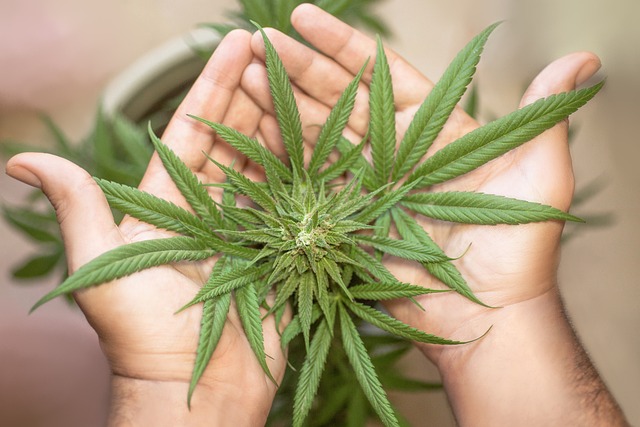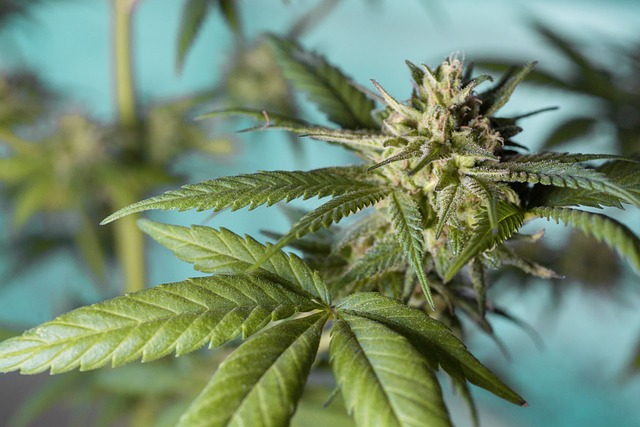Delta-9 THC gummies are a popular consumption method within the European Union, where their legality is governed by a combination of international treaties and EU regulations. As per the 1961 Single Convention on Narcotic Drugs, amended by the 1971 Protocol, and the 1988 Psychotropic Substances Convention, Delta-9 THC is classified as a narcotic under EU law, subject to strict regulations that vary by member state. The EU's Novel Food Regulation (EU) 2015/2283 further outlines the legal framework for these products, requiring safety assessments and compliance with EFSA criteria for market entry. Delta-9 THC gummies are legally available in some EU countries for medical and scientific purposes, but their sale and consumption are restricted or prohibited in others. Consumers must verify the legality within their specific country of residence, with strict adherence to local laws and regulations. Proper storage is essential to maintain the potency of Delta-9 gummies; they should be kept in a cool, dry place away from direct sunlight and excessive heat, in their original child-resistant packaging. Safety measures include keeping products out of reach of children and pets and adhering to recommended dosages to avoid overconsumption. It's crucial for both consumers and businesses to stay informed about the evolving legal landscape and comply with regulations to ensure safe and legal consumption of delta-9 THC gummies in EU countries.
Delta-9 gummies have emerged as a popular consumption method within the EU’s evolving cannabis landscape. This article delves into the nuances of Delta-9 gummies, offering insights on their legal status, responsible sourcing, and user experiences. With a focus on understanding the regulatory framework in place across various EU countries, we guide readers through the intricacies of purchasing these products legally. We also provide practical advice on dosage to manage effects tailored to the European market’s needs. Consumers will benefit from our detailed approach to storing and handling these gummies responsibly. Join us as we navigate the complex regulatory environment that governs Delta-9 gummies in the EU.
- Understanding Delta-9 Gummies: A Legal Perspective in EU Countries
- Sourcing Delta-9 Gummies Legally: A Guide for EU Residents
- Dosage and Effects: What to Expect from Delta-9 Gummies in the EU Market
- Storing and Handling Delta-9 Gummies: Best Practices for EU Consumers
- Navigating the Regulatory Landscape: Delta-9 Gummies in the European Union
Understanding Delta-9 Gummies: A Legal Perspective in EU Countries

Delta-9 tetrahydrocannabinol (THC) gummies are a popular consumption method for cannabis in various forms, including those infused with Delta-9 THC. In the European Union (EU), the legal status of such products is subject to strict regulations. The EU’s legal framework regarding Delta-9 THC primarily revolves around the 1961 Single Convention on Narcotic Drugs, as amended by the 1971 Protocol, and the 1988 Psychotropic Substances Convention. These treaties categorize substances and set controls to ensure they are used responsibly and legally.
As of the knowledge cutoff in 2023, Delta-9 THC is classified as a narcotic within the EU, and its production, distribution, and possession are heavily regulated under each member state’s national laws. Notably, the EU’s Novel Food Regulation (EU) 2015/2283 also plays a crucial role in determining the legality of such products, as it requires new food products to undergo a safety assessment before they can be legally marketed within the EU. Therefore, for Delta-9 THC gummies to be legal in the EU, they must comply with the Novel Food Regulation and meet the specific criteria set forth by the European Food Safety Authority (EFSA). Additionally, member states may have their own stringent laws and regulations governing the sale and use of cannabis-related products, including Delta-9 THC gummies. It is imperative for consumers and businesses to stay informed about the evolving legal landscape within each country to ensure compliance with local laws.
Sourcing Delta-9 Gummies Legally: A Guide for EU Residents

Navigating the legal landscape for Delta-9 gummies in the European Union can be a complex task due to differing regulations across member states. As of my knowledge cutoff in 2023, the sale and consumption of cannabis products with higher than 0.2% THC are generally prohibited under EU laws, which classify THC as a narcotic. However, some EU countries have specific medical or research programs where Delta-9 gummies may be legally available. Residents interested in sourcing these products should first verify the legal status within their country of residence.
For those in countries that permit the use of Delta-9 THC products for medicinal purposes, it is crucial to obtain them through licensed pharmacies or specialized dispensaries. In countries where such products are not legal for medical use but are permitted for research or scientific studies, individuals must ensure they are part of an approved study or hold a relevant license. Additionally, EU residents should only purchase Delta-9 gummies from reputable sources that comply with local laws and European Union regulations regarding the production, sale, and distribution of such substances. Always prioritize products that have transparent labeling, clearly indicating their THC content and any other ingredients or potential allergens. This not only ensures compliance with legal standards but also promotes safety and informed usage.
Dosage and Effects: What to Expect from Delta-9 Gummies in the EU Market

Storing and Handling Delta-9 Gummies: Best Practices for EU Consumers

Delta-9 tetrahydrocannabinol (Delta-9 THC) gummies, a popular consumable within the European Union where they are legal, require proper storage and handling to maintain their efficacy and potency. Consumers in the EU should store their Delta-9 gummies in a cool, dry place away from direct sunlight and excessive heat. This is crucial as exposure to light and warm temperatures can degrade the THC over time, affecting both the quality and the intended effects of the product. Ideally, these gummies should be kept in their original, child-resistant packaging, which often includes a resealable feature to minimize the risk of contamination and preserve the cannabinoids’ integrity. Additionally, it’s recommended to label the storage container with the date of purchase or the best before date to ensure that consumers use the gummies within the appropriate timeframe. By adhering to these best practices, EU consumers can maximize the benefits of their Delta-9 THC gummies and enjoy a consistent and safe experience.
For those in the EU who have legally purchased Delta-9 THC gummies, understanding proper handling is equally important as storage. It’s imperative to keep these edibles out of reach of children and pets, as they can be harmful if ingested in large quantities. Also, it’s wise not to cross the threshold of recommended dosages, as overconsumption can lead to unwanted effects. Consumers should always be aware of their surroundings and have access to emergency information in case of accidental ingestion by someone underage or sensitive to THC. By following these handling guidelines alongside optimal storage practices, EU consumers can responsibly enjoy Delta-9 THC gummies while ensuring safety and compliance with local regulations.
Navigating the Regulatory Landscape: Delta-9 Gummies in the European Union

In the European Union, the regulatory framework governing delta-9 tetrahydrocannabinol (THC) products, including gummies, is complex and varies by member state. As of the current regulations, delta-9 THC is classified as a narcotic, and its legal status for recreational use is uniformly prohibited across all EU countries. However, there are exceptions for medicinal and scientific purposes, where delta-9 THC products can be legally prescribed or used under strict conditions. It’s crucial for consumers and businesses alike to stay updated on the local laws within each country, as interpretations and implementations of these regulations can differ significantly. In this context, delta-9 gummies, a popular edible form of cannabis, must comply with the EU’s Novel Food Regulation if they are to be sold as food supplements. This means that producers must obtain authorization from the European Commission before placing these products on the market. Consumers in EU countries interested in delta-9 gummies should ensure that the products they purchase adhere to these regulations and are sourced from reputable providers who comply with the stringent requirements set forth by the EU’s regulatory bodies. Navigating this landscape requires due diligence and a clear understanding of both national and European legal frameworks regarding THC-containing products, including delta-9 gummies.
When considering the consumption of delta-9 gummies within the European Union, it’s crucial for residents to be well-informed about their legal status, dosage implications, and proper handling. This article has navigated the regulatory framework, highlighting key aspects of delta-9 gummies’ legality in EU countries, guiding you on how to source these products responsibly, and advising on their effects and safe storage. As with any consumable product, knowledge is power; staying updated on local regulations and understanding the impact of varying dosages will enable consumers to make informed decisions. Remember, the legal landscape for such substances is subject to change, so it’s always prudent to verify the most current information from authoritative sources within your jurisdiction.
